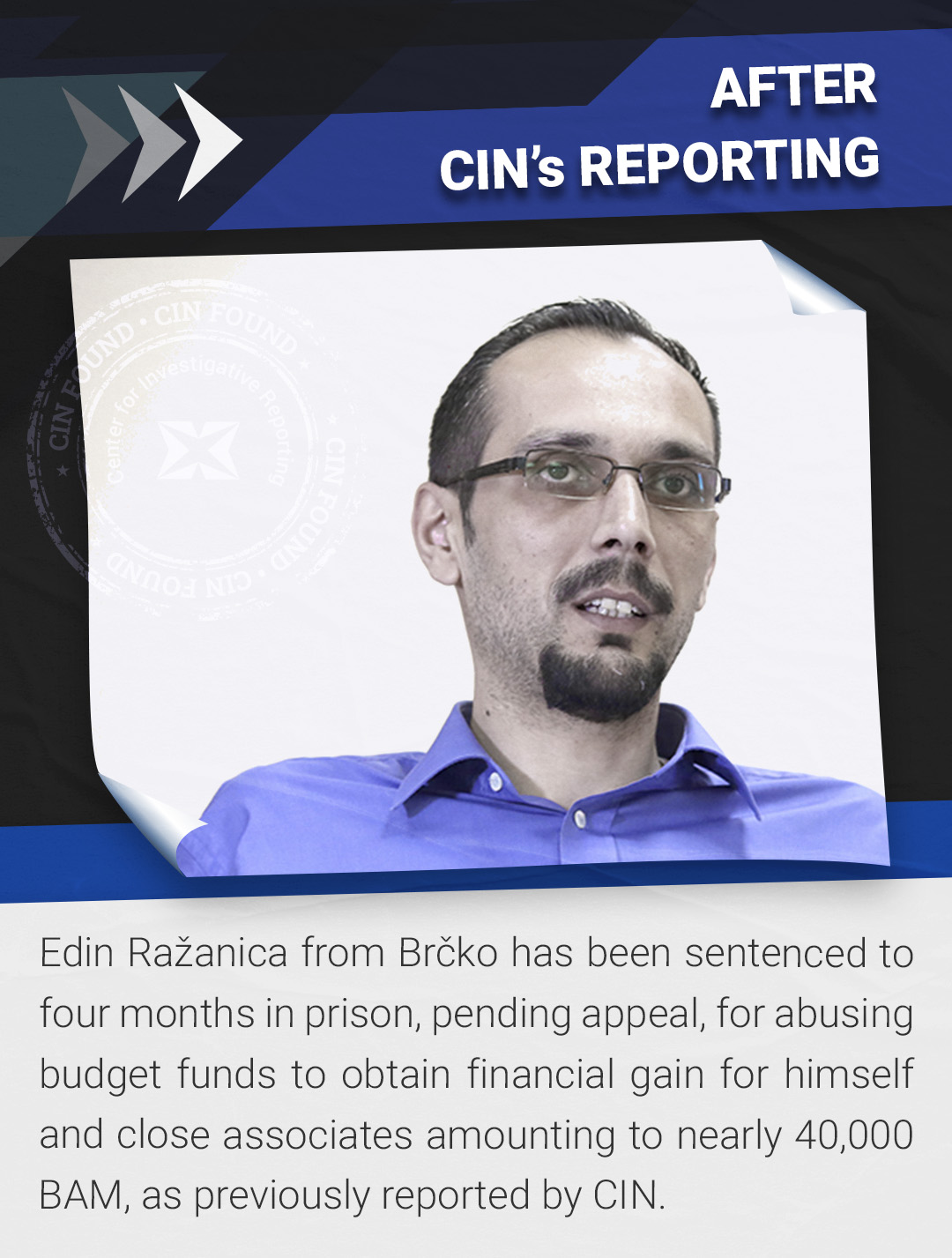What exactly happened when Zahida Selak, a graphic artist with the Archive of the Federation of Bosnia and Herzegovina (FBiH) was summoned into her director Mensur Hadžimusić’s office last February, only the two of them know.
The one thing certain is that after the meeting, by pressing charges in Municipal Court in Sarajevo last August, Selak, 47 and the mother of two, became the first worker in BiH to request official compensation for mobbing – or psychological harassment in the workplace.
She is no longer the only BiH worker who decided to take that step. In November last year, the court got another job abuse suit, although details about the accuser, the workplace and the allegations have not been released. In the same month a diplomat with the Ministry of Foreign Affairs, Nedžad Hadžimusić, no relation to the Archive director, was publicly accused of sexual harassment. *SEE A NOTE AT THE END OF THE STORY
A Prism Research poll of 1,550 people conducted in December for The Center for Investigative Reporting in Sarajevo (CIN) indicated that as many as 13.4 percent of the country’s best educated workers claim to have been victims of mobbing.
The court fight over whether her boss violated Selak’s rights could open debate about the issue and change the situation of all workers who find themselves in a similar situation.
A widespread but little discussed problem
Experts say that mobbing is more than having an argument in the office. It is continuous psychological abuse and humiliation, with a goal of undermining reputation and dignity and forcing someone to quit.
Sanja Vlaisavljević, director of the Center for Culture of Dialogue, said workplace harassment can be traced to a lack of professional ethics and lack of distinction between behaviors appropriate for private and for public settings.

She said Selak is unique. More often workers who believe they have been harassed feel fearful and isolated and so keep quiet. Under socialism, she said, all people could do was put up with abuse.
‘Individuals were sometimes sentenced for public outcries’ she said. ‘These experiences of silence, closeness and unwelcoming of an open discussion is what is still present in the public scene.’
Psychologist Jasna Bajraktarević said the patriarchal traditions of the Balkans enforce deference for superiors no matter the offenses they may commit. ‘It is a common opinion’ she said, ‘that there always should be someone to listen to, and someone who is chief, in the family as well as in the workplace.’
In a shaky economy where jobs are precious, there is even more incentive to stay quiet in the face of harassment. And most vulnerable of all may be unregistered workers. Unlike official workers who have recourse to the courts when they believe their workplace rights have been violated, unofficial workers have little protection against arbitrary rules or offensive behavior by bosses.
One worker who did not remain silent
Selak says her troubles at work stem from a complaint she lodged in January 2006 with the Board of State Complaints Service. She protested a decision Hadžimusić had made about salaries in the office.
It was about this matter that Hadžimusić allegedly called her into his office.

As she recounts it, the director told her: ‘You are writing letters to the government, but I am powerful enough to prevent any reaction from the authorities.’ She said he threatened to fire her and ‘he was slamming his hands on desk while he was telling me that.’
She said she ran out of the building after the meeting so upset she found herself in the middle the street, cars honking at her.
Work soon became a nightmare, she said. She was demoted, despite having college classes, to running a copy machine, but given no documents to copy. Her salary was cut. Her annual leave was reduced two days. ‘I came at 8 in the morning and left at 4. I didn’t have contact with anyone, I sat at my desk and looked at dirty walls’ Selak said.
Selak, who has worked at the archives since 1997, said she began going to a doctor for stress. She takes tranquilizers. She took sick leave for all of June last year.
Hadžimusić declined comment for this story. He gave reporters a copy of a letter the FBiH Legal Defense Office sent to the court on his behalf maintaining that employers have the right to change an employee’s position, salary and leave and that Selak’s allegations about mobbing were ‘unproven, unfounded and completely irrelevant and have nothing to do with the suit.’
Official reactions

Selak wrote 28 complaints and pleas to everyone from then Federation of BiH Prime Minister Ahmet Hadžipašić, his deputies at the time, Dragan Vrankić and Gavrilo Grahovac, to the Agency for State Civil Service FBiH, then Minster of Justice Bojana Krišto, and the Helsinki Committee for Human Rights in BiH.
Hadžipašić didn’t answer. ‘I have professionals who analyze and reply to particular cases’ said Hadžipašić. He added that those who are unjustly and illegally harmed should be compensated.
Grahovac and Branka Inić, a lawyer for the Helsinki Committee, responded to Selak’s letters.
Inić said the Helsinki Committee determined that Selak’s complaint was valid. The committee informed Hadžimusić and recommended to Hadžipašić and his deputies that they review Selak’s charge.
The director, the committee wrote, ‘threatened to fire her, thus performing the act of mobbing by preventing her in fulfillment of her duties and work-related tasks…He banned her from contacting other employees.’
On the other hand, Grahovac asked the Federal Ministry of Labor and Social Politics, and the Agency for Civil Service of FBiH to review Selak’s claim that Hadžimusić was in the post of director illegally.
Director of the FBiH Civil Service Agency Enver Išerić said that, by law, acting positions are allowed only in special circumstances that require notifying the agency. That didn’t happen. Hadžipašić authorized Hadžimusić in October 2005. He said the agency should have objected then.

‘We didn’t know…’ Išerić said. ‘We didn’t have information that Mr. Hadžimusić was appointed acting executive…’
A replacement has since been named to the position.
Lack of understanding
While she was fighting one of the hardest battles of her life, Selak’s colleagues have sided with the boss and some of them wrote in his defense against Selak’s allegations.
Bajraktarević said mobbing victims often face their difficulties alone. ‘We have a problem where an individual, exactly because it is an individual, can’t prevail’, she said, adding that out of concern for keeping their own positions, she said, others distance themselves and identify with aggressor.
After her dispute with the boss began, Selak also got a bad evaluation. ‘She performed her obligations below professional and quality standards, and didn’t finish even a single assigned task’ director Hadžimusić wrote. His evaluation conflicted with earlier evaluations by other directors who praised her ‘responsibility, tidiness and deadline abiding in fulfilling her tasks.’
Last October, the Board of State Complaints Service rejected most of Selak’s complaints, but said the bad evaluation had to be redone in line with proper procedures.

Selak’s complaint led to an investigation into whether Hadžimusić had improperly been made ‘authorized director’ of the archives.
To be continued in court
Inić said it is important that the court take up the issue of mobbing even though Selak’s charge against Hadžimusić and the Board for State Complaints Service technically is about illegal work decisions.
Even if Selak wins the monetary compensation she is seeking, it won’t make up for the suffering she’s gone through, Inić said. Her marriage and her family have been affected.
‘I come home,” Selak said, “either I’m silent or I cry.’
_______________________________________________________________________________________________________________
Nedžad Hadžimusić has sent documents to CIN that show that “the case of sexual harassment” stems from a cartoon which he emailed to a female colleague at work. Hadžimusić, who was at the time an assistant to the BiH Foreign Affairs minister in the Department of Multilateral Affairs, replied with a cartoon to her memo. The illustration shows a man and a woman in office. To the man who sits behind his desk, the woman says: “All women in the office have sued you for sexual harassment. Since you have not sexually harassed me, I’m suing you for discrimination.”
This led to the disciplinary proceedings. He was reprimanded by the Disciplinary Commission of the BiH Civil Service Agency in 2006. Hadžimusić submitted an appeal. In March 2007, the Complaint Board upheld the appeal and ruled the Disciplinary Commission’s decision invalid and ordered the case to be reheard.
The BiH Civil Service Agency filed an administrative lawsuit against the decision, but the Court of BiH through it out.
Note published Jan 26, 2015







